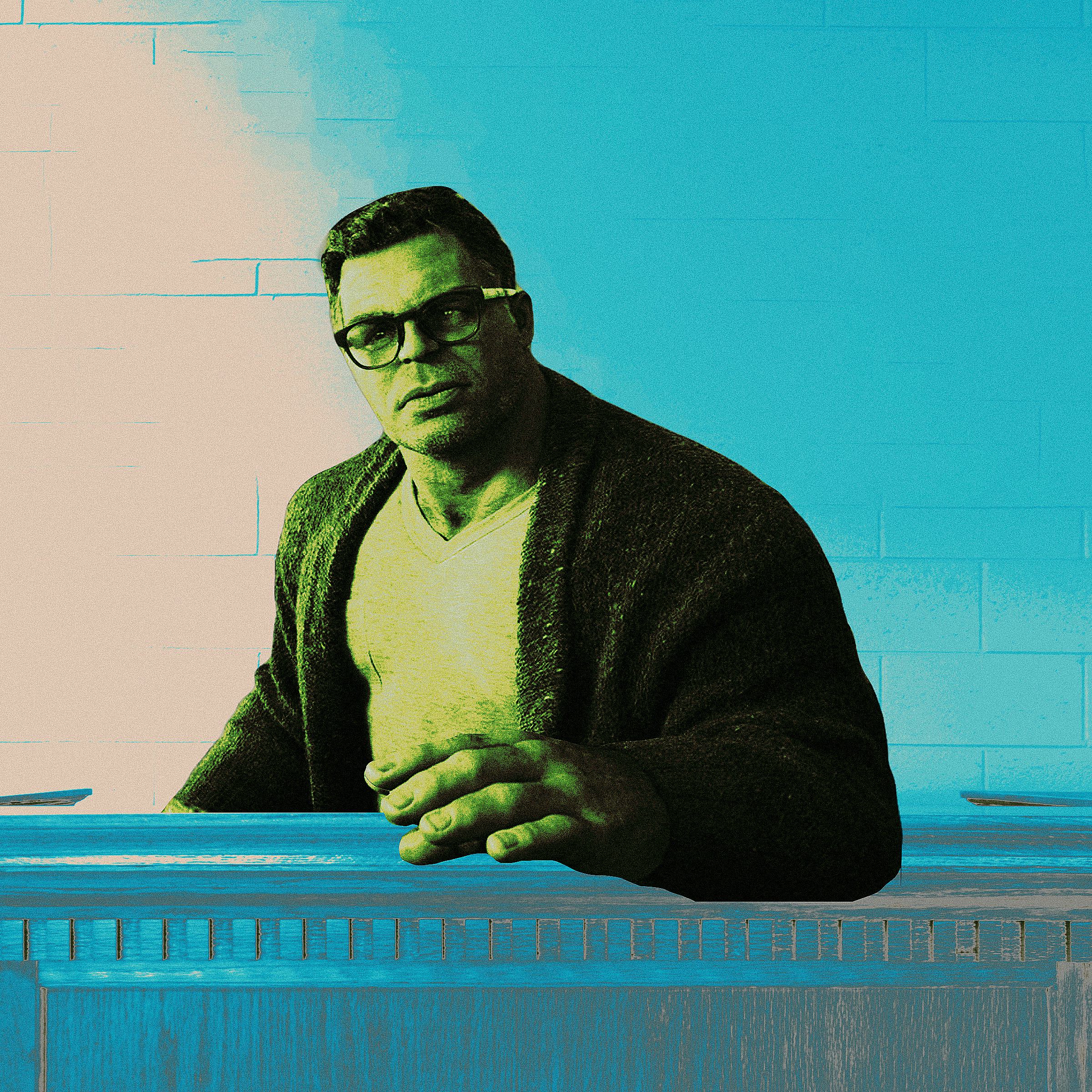
In 2007, Justin Lambros noticed a hiccup in Marvel’s ambitious plan for a cinematic universe.
Lambros was working as vice president of Marvel Interactive at the same time Marvel Studios began development on the Iron Man movie that would launch the MCU, and part of his job was to produce four new video games to support the four biggest characters at Marvel’s disposal: Iron Man, Captain America, Thor, and… the Incredible Hulk.
Three of those characters went on to launch billion-dollar franchises of their own. The Hulk? Not so much. Distributed by Universal, The Incredible Hulk flopped at the box office (at least compared to Iron Man). Since then, the big green guy has been relegated to supporting-character status.
But even back then, the disconnect between the rest of Marvel’s operation and The Incredible Hulk was already obvious to Lambros — especially compared to the studio’s other big movie at the time.
“We didn’t have to deal directly with Universal, but it definitely was very different than Iron Man,” Lambros tells Inverse. “I felt like, at the time, we were actually kind of on the inside with the Iron Man team. Jon Favreau, Robert Downey Jr., those guys would share absolutely anything.”
“It definitely was very different than Iron Man.”
Marvel Studios happily shared key details, from the design of Iron Man’s suit to its various flight modes in the movie. By comparison, trying to get information from the set of The Incredible Hulk was like pulling Hulk-sized teeth.
“There are items from the story that we ended up putting into the game that ended up being changed,” Lambros says. “There’s disconnects from the opening sequence of Bruce Banner attempting to kįll himself, the Hulk catching a bullet in his mouth. That was a very cool thing early on that got cut from the movie.”
Pretty much any Marvel fan can tell you what happened next. Marvel’s planned team-up came to fruition with The Avengers, which made a billion dollars at the box office and changed Hollywood forever. But lost in that story is the real reason we never got another Hulk movie. Because while his lackluster debut didn’t help, the lack of a follow-up Hulk solo film isn’t for a lack of trying.
But to understand the Hulk’s messy cinematic history, we need to go back even further — all the way to the early 2000s, when your average movie fan didn’t even know who the Avengers were, and Iron Man was best known as a cheap-looking ‘90s cartoon.
A messy legal history
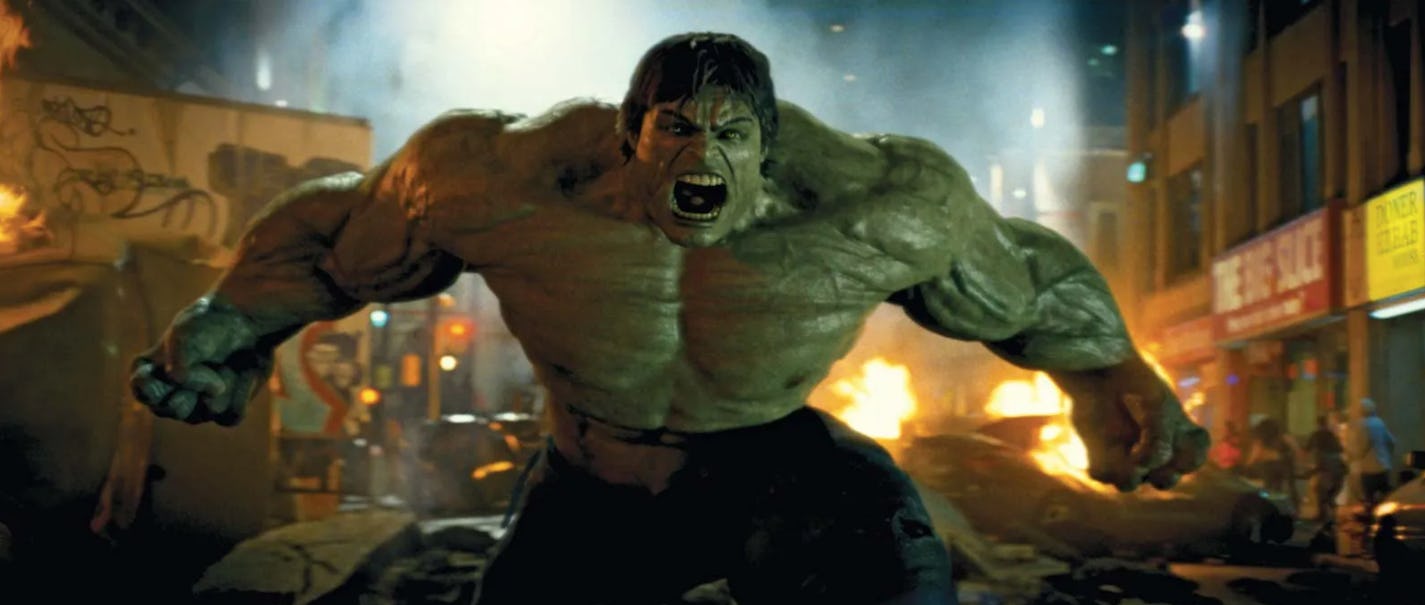
At the end of the 20th century, and facing bankruptcy, Marvel started selling off the movie rights to its biggest heroes. Spider-Man went to Sony. The X-Men went to Fox. And the Hulk went to Universal.
In 2003, Universal released Ang Lee’s Hulk, an unusual take on the superhero that didn’t exactly resonate with fans or critics. (One review even calls it “a turgid, CGI-Frankenstein reject,” while Common Sense Media put it bluntly: “Not a great movie.”) Despite the response, Universal tried to make a sequel. There was even talk of that sequel going direct-to-video, with David Duchovny, of The X-Files fame, taking over for Eric Bana as Bruce Banner. But when a sequel failed to materialize, Universal’s contract expired and Marvel regained the rights to the character.
The only problem? Marvel didn’t have distribution in its early, pre-Disney days. So deals were ironed out with other studios. Paramount Pictures got to slap its name on Iron Man, and, in the case of The Incredible Hulk, that privilege went to Universal. It was a logical fit, given the studio had already produced the ‘03 film. Unfortunately, it also backfired.
“What they did was they entered into distribution deals which are, effectively, licensing and revenue share agreements,” explains Noah Downs, an entertainment and IP lawyer at the law firm Premack Rogers. “[Marvel Studios] licensed out the right to distribute those films, in exchange for Universal or Paramount taking a huge cut.”
“There’s a world in which Marvel could, in theory, go ahead and make a Hulk movie.”
In its original 2006 SEC filing, Marvel explains the terms of the Universal deal:
“Universal Studios has agreed to distribute Marvel’s film The Incredible Hulk and sequels on essentially the same terms as those on which Paramount has agreed to distribute the other films financed and produced under the film facility.”
“Essentially” is doing a lot of heavy lifting there, particularly as it relates to the length of the contract. Based on the agreement signed with Paramount, Downs believes Marvel likely entered into a 15-year distribution agreement with Universal regarding the Hulk films. (The specifics of the contract are a secret to this day, and the source of endless speculation.) If that’s true, then Marvel Studios could get the rights back sometime in 2023. But if the deal was for 20 years instead of 15? That’s a different story.
“There’s a world in which Marvel could, in theory, go ahead and make a Hulk movie,” Downs says. “But it might just be cost-prohibitive for them to do it because Universal would have the exclusive distribution. So Marvel wouldn’t be able to fully realize the value on that movie.”
One way or another, however, Hulk will (eventually) return to Marvel.
“As we’ve seen with the other distribution avenues on Netflix and whatnot, Disney and Marvel have a way to get things back,” Downs says.
Other Hulk-sized problems
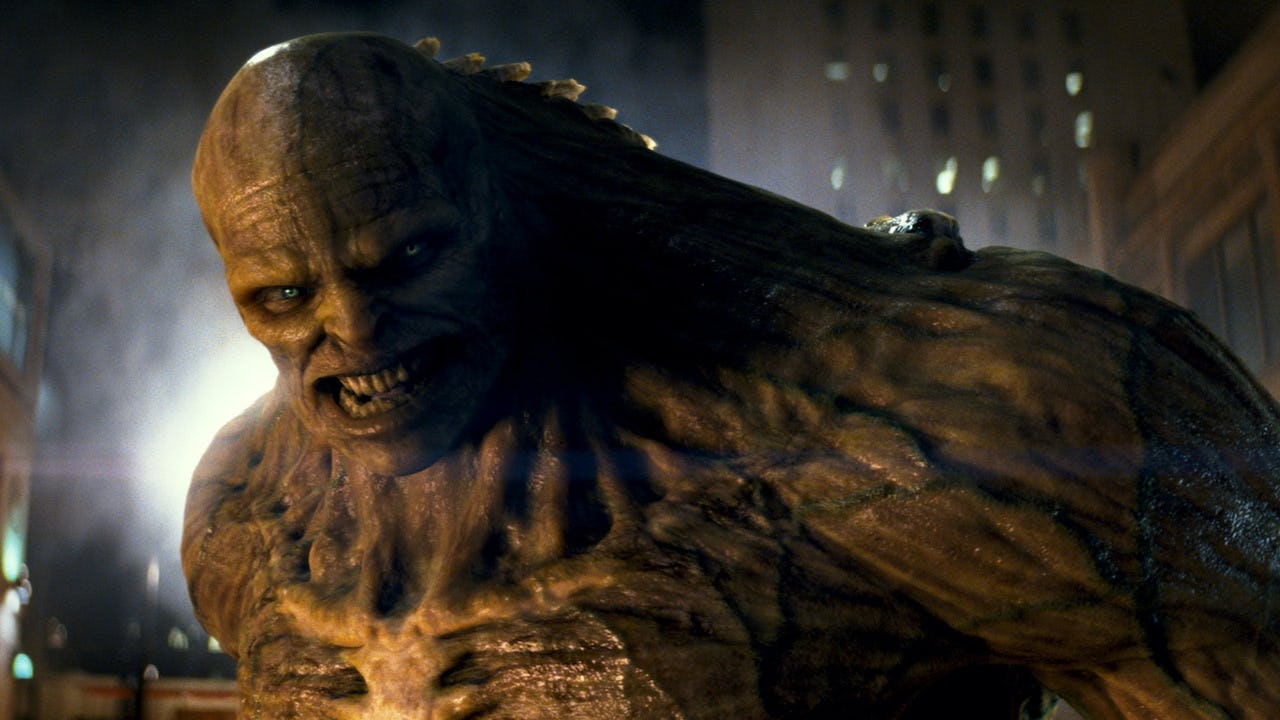
“If you told me that [Incredible] Hulk was part of the Marvel Universe, I wouldn’t have known,” Kyle Cooper tells Inverse. “I would have thought that it was before that.”
Cooper is the title designer who crafted the original Marvel Studios logo with the flipping pages. He also worked on both Iron Man and Incredible Hulk, giving him unique insight into where the latter movie went wrong. So what exactly went wrong?
At the time, the belief was that The Incredible Hulk was the “ringer” in Marvel’s Phase 1. He was one of Marvel’s most popular characters, right behind Spider-Man and the X-Men. Meanwhile, current A-listers like Thor and Iron Man were hardly known to the general public. Hulk was a very recognizable Marvel character, in no small part thanks to The Incredible Hulk TV show in the ‘70s — as well as Ang Lee’s 2003 film. The character, much like Marvel’s greatest creations, had a great hook with that whole “beast inside you” identity crisis. Not to mention the average Joe could simply hook into the appeal of an unstoppable green rage monster. It just works.
Speaking to Superhero Hype in 2008, Marvel Studios head Kevin Feige laid out the thinking at the time ahead of Incredible Hulk’s release: “Hulk is Hulk, a huge character for us, and next to Spider-Man, he’s our most popular hero across the board. So it was a no-brainer to not wait more than five years to bring him back.”
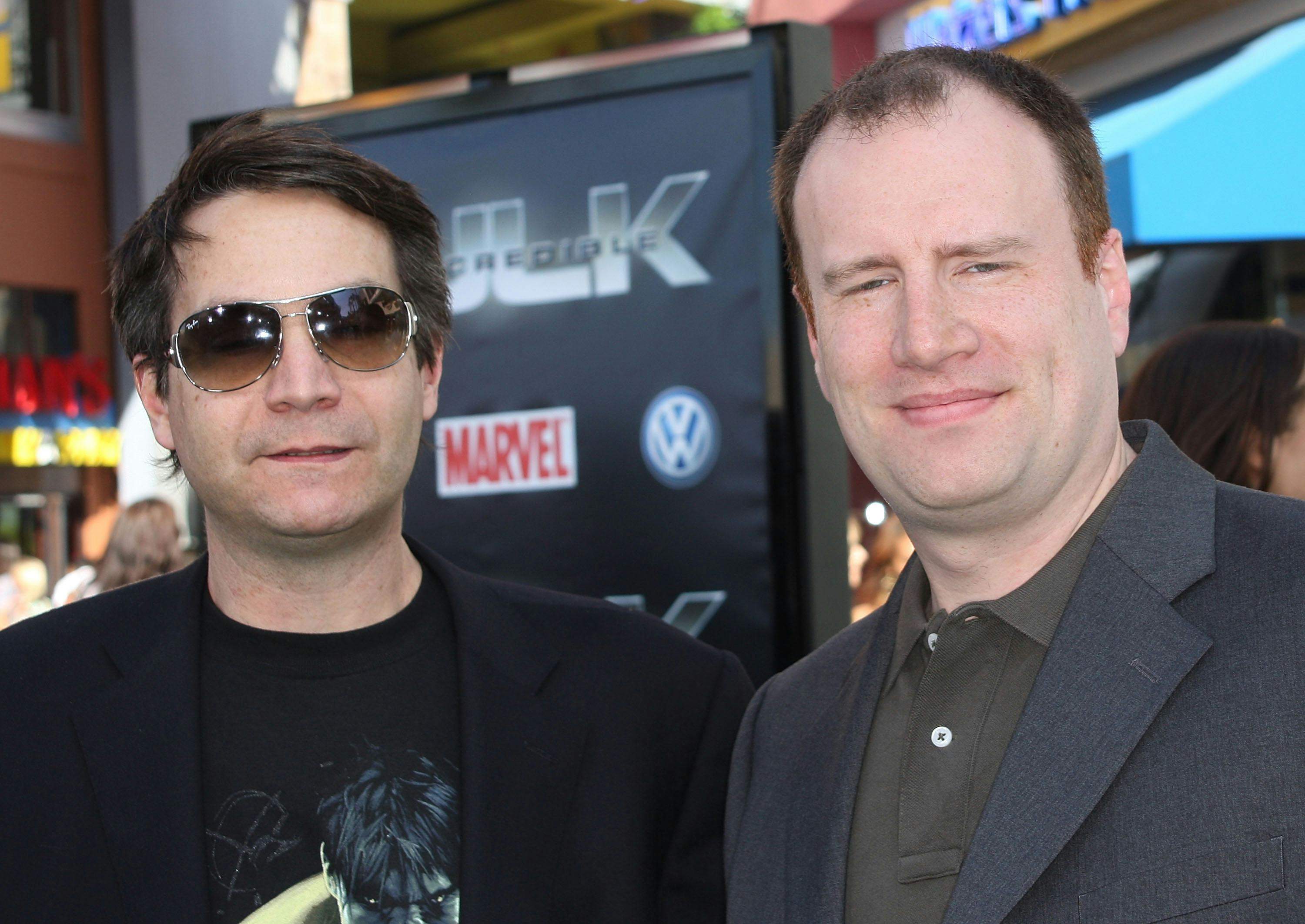
The potential was there, but the execution fell flat. Perhaps the lesson is the same one Marvel is learning again today: Kevin Feige can only do so much at the same time. And with Iron Man filming in Los Angeles while The Incredible Hulk filmed in Toronto, Feige couldn’t provide quality control for both movies at once. The result was a brooding, scattershot action flick with questionable CGI and a tonal identity crisis that has only been incorporated into the MCU in bits and pieces.
The film’s spotty production also bled over into the games, where Justin Lambros struggled to create a Hulk video game for a studio that wasn’t sure what it wanted in the first place. For one, they had issues nailing down the look for the Hulk during the movie’s production.
“Fundamentally, it changes everything,” Lambros says. “What was the shoulder structure like? What is his posture like?”
These last-minute changes meant major setbacks for the game, but they also affected the movie itself — especially when it came to the lackluster Hulk CGI.
Will we ever get another Hulk movie?
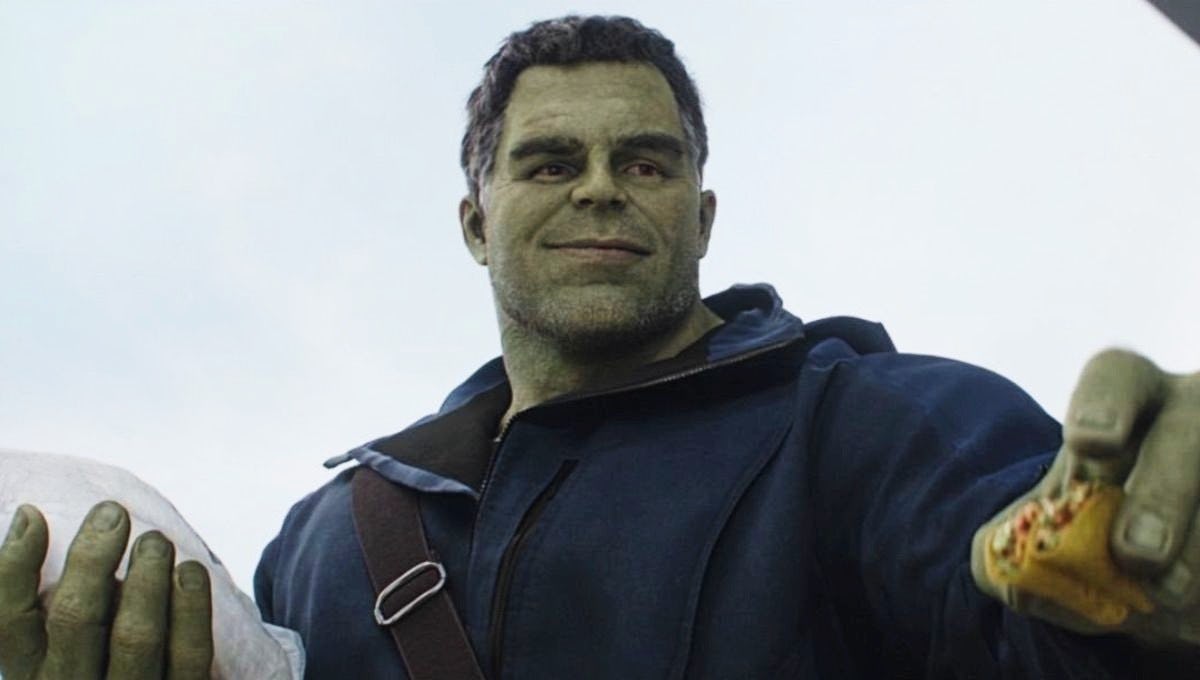
The Hulk remains an A-lister thanks to appearances in massive hits like Thor: Ragnarok and Avengers: Endgame, but he still feels more like a supporting role in the MCU than the main character. Maybe one day soon we’ll get another standalone Hulk movie, but in the meantime, there’s always the legacy of Marvel Studios’ earliest misfire.
“From that high of [Iron Man] kicking off and blowing through estimations, and really launching this new character. Then, having your established character, who was kind of the ringer of those four, to not deliver…” Justin Lambros says, trailing off.
All these years later, the Incredible Hulk still hasn’t delivered for Marvel Studios. But with a bit of legal luck, the MCU may give us that big, green blockbuster we’ve been waiting on for two long decades.







